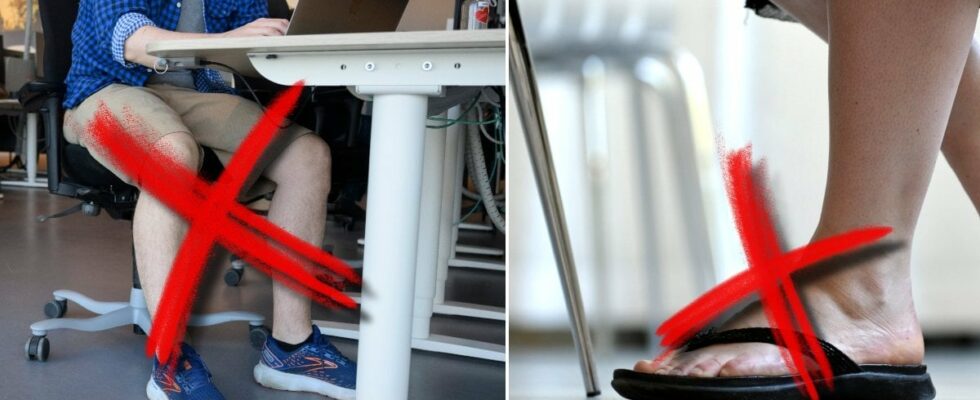Is it okay to wear shorts at work? Is this blouse too low-cut for the client meeting? Or is the skirt way too short?
When workplaces come to life after the summer vacation, it is not infrequent that considerations regarding clothes at work sail up the agenda.
News24 has straightened out “the do’s and don’ts” when it comes to common workplace dress codes.
DON’T MISS: How do you know you won’t get the job: “Ghosting…”
HR employee: Skip the shorts and flip-flops
In a video on Tiktok where HR employees Lena (@sunnylenak) rates other creators’ office clothes, she takes the opportunity to tell about occasions where she has had to send employees home because of the clothes they wear – or don’t wear.
One of the watersheds in the clothing debate seems to be whether shorts can be worn or not – something that Lena advises against, at least if they are too tight:
– I had a former employee who used to come in with pants that were actually two or three sizes too small and accentuated everything – front and back, she explains and continues:
– His boss was too uncomfortable to talk to him, so I had to take the call and finally sent him home. I also had an employee come in and really short shorts a couple of times.
The HR creator also warns against wearing flip-flops or going barefoot in the workplace:
– I’ve had so many shoe situations where employees simply don’t have shoes on, or they come in with flip flops and then walk around the office barefoot. It’s really disgusting, she says.
Are there differences in expectations between men’s and women’s clothing?
In the same video, HR-Lena says that she is more often forced to send male employees home than women, in contrast to notions that it is women who are more often told off.
– I actually think that men have a harder time with the dress code than women. It may seem like they don’t, but I’ve actually sent home more men in my HR career than women for the clothes they wear, she says.
Lena goes on to say how she generally doesn’t have to worry about male employees wearing “super short and revealing clothes,” but that “weird and sometimes gross things” are a much more common problem.
– Men seem to like wearing graphic t-shirts with inappropriate things on them or with inappropriate words written on them, and think it feels okay.
DON’T MISS: Do you work more than the average Swede? Compare yourself to the average
What rules apply to dress codes?
Although regulations regarding special clothing in the workplace are not a statutory rule, it is permitted for the employer to decide whether there should be a dress code or not.
What is considered decent, on the other hand, can be more or less pronounced, and can vary greatly between industries – a lawyer might have to dress in a suit while a software developer might wear more casual attire.
If there is a clear dress code, however, you are always obliged to follow it, says the employment law lawyer Jessica Steelhammer in an interview with The chief newspaper. Failure to follow the prescribed dress code may be considered a breach of the employment contract, which in the long run may lead to dismissal.
– But it takes quite a lot, first comes promises and warnings, says Stålhammar.
READ MORE:
Received an SMS from “Försäkringskassan”? Then you should do this
Pensioners must pay back SEK 730,000
